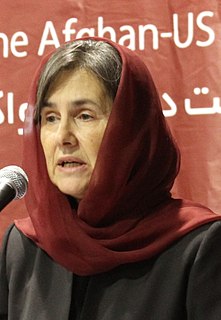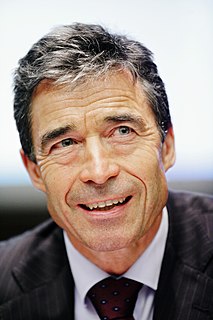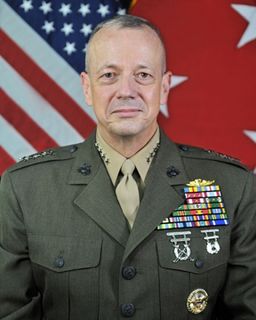A Quote by Hillary Clinton
The president [Barack Obama] decided to leave more troops than he had originally planned in Afghanistan. We have a very cooperative government there, with Ashraf Ghani and his top - his top partner, Abdullah. And they are doing their very best. And the Afghan army is actually fighting. The Afghan army is taking heavy losses defending Afghan territory.
Related Quotes
The question is always how you get the number of troops needed. They do not have to be coalition forces. We also have to expand the training program for the Afghan National Army and the national police, in particular. and Defense Secretary Robert Gates has already announced support for a significant increase in the Afghan army.
And across Afghanistan, every single day, Afghan soldiers, Afghan police and ISAF troops are serving shoulder-to-shoulder in some very difficult situations. And our engagement with them, our shoulder-to-shoulder relationship with them, our conduct of operations with them every single day defines the real relationship.
But we have achieved at least two important things. Afghanistan is no longer a safe haven for international terrorists. We have a strong Afghan army, which is fighting the terrorists and Taliban. And the second thing is that they are able to do that without us being there to conduct the combat operations.
The Afghan government is much better informed, much more intrusive and ambitious than I had guessed. There are amazing craftsmen in Kabul but few designers and wage rates are astonishingly high - which is a problem when trying to support and promote Afghan craft exports. The community in Murad Khani in the old city - who we are helping to restore their area - have been the best part so far - eccentric, led by a champion wrestler, determined, proud and courageous.
I don't know anyone who is more admired and respected in the international community than President Karzai, for his strength, for his wisdom and for his courage to lead this country first in the defeat of the Taliban and now in rebuilding a democratic and unified Afghanistan. And I can tell you I am with foreign ministers and with heads of state all over the world. I sit in the councils of NATO. I sit with the EU. I sit with people all over the world and there is great admiration for your president and also for what the Afghan people are doing here.
































